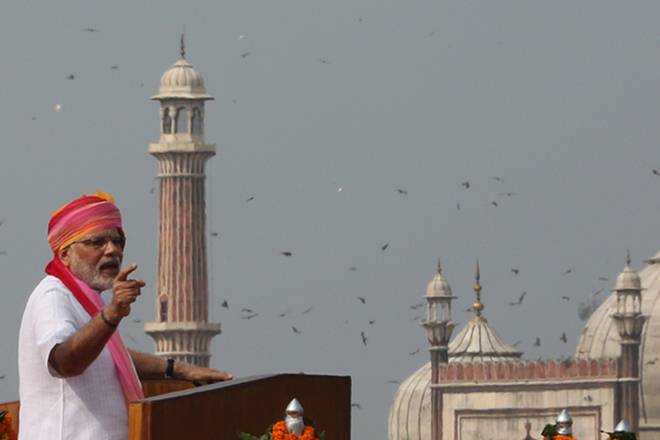Chinese official media attacks PM Modi for Balochistan remarks
Tue 30 Aug 2016, 12:12:03

A state-run Chinese daily today cried foul over India's move to extend enhanced compensation for victims of terror to people of Pakistan-occupied Kashmir, saying Prime Minister Narendra Modi has "lost patience and switched to the expected hardline tone of hostility".
Referring to Modi's comments on Balochistan for the first time, an article in the state-run Global Times website said he is raising it to divert attention from the tense situation prevailing in Kashmir."After reluctant attempts to revitalise Indo-Pak relations, Narendra Modi, now in his third year as Indian prime minister, has lost patience and switched to the expected hardline tone of hostility," it said.
Describing the extension of Rs five lakh compensation to the victims of terrorism to people in PoK, as a "provocation", the article said "more importantly, Kashmiris on the Pakistani side of the border can claim this compensation, too".
"This is not the only provocation. Another was his Independence Day address on August 15," it said, referring to Modi's remarks that people of Balochistan, Gilgit and PoK were thanking him for raising human rights violations there.
This is the first time Chinese official media referred to Modi's remarks about PoK and Balochistan, where China is building USD 46 billion Economic Corridor, which was objected to by India as it goes through the disputed territory.
"Analysts see the political push as coming from a small team filled by influential ministers and people who are the
veterans of the 'cold war' with Pakistan. Some are members of the National Executive of the RSS," it said."This risky gesture is not supported by everyone in the Indian government. Outstanding reservations come from his intelligence chiefs and the external affairs ministry," said the article 'Modi's provocations raise risks for India'.
veterans of the 'cold war' with Pakistan. Some are members of the National Executive of the RSS," it said."This risky gesture is not supported by everyone in the Indian government. Outstanding reservations come from his intelligence chiefs and the external affairs ministry," said the article 'Modi's provocations raise risks for India'.
"Why would Modi choose to publicly reference Balochistan when his country kept denying an Indian role there? Even on Kashmir, why would he be so provocative when the Pakistani response will inevitably draw world attention at a time his government is trying to prevent the issue being internationalised?," it said.
"Not surprisingly, there are speculations that Modi is just trying to divert global attention from what's going on in the valley," it said. "This may only make it even trickier for India to find a resolution by deliberately expanding the range of bilateral conflicts," the article said.
"Another concern for Modi is the 19th South Asian Association for Regional Cooperation (SAARC) summit, which will be held in Pakistan this year. Modi is scheduled to visit Islamabad for the SAARC summit in November, but the impatient prime minister has decided to break up the Indo-Pak impasse to see what can be fished from the troubled waters," it said.
"But the long-term cost will be the moral blow to India when it tries to manage its own insurgencies and secessionist movements, which tends to invite international attention and intervention," it said.
No Comments For This Post, Be first to write a Comment.
Most viewed from International
Most viewed from World
AIMIM News
Latest Urdu News
Most Viewed
May 26, 2020
Do you think Canada-India relations will improve under New PM Mark Carney?
Latest Videos View All
Like Us
Home
About Us
Advertise With Us
All Polls
Epaper Archives
Privacy Policy
Contact Us
Download Etemaad App
© 2025 Etemaad Daily News, All Rights Reserved.



.jpg)






.jpg)
.jpg)








.jpg)
.jpg)
.jpg)
.jpg)
.jpg)

















